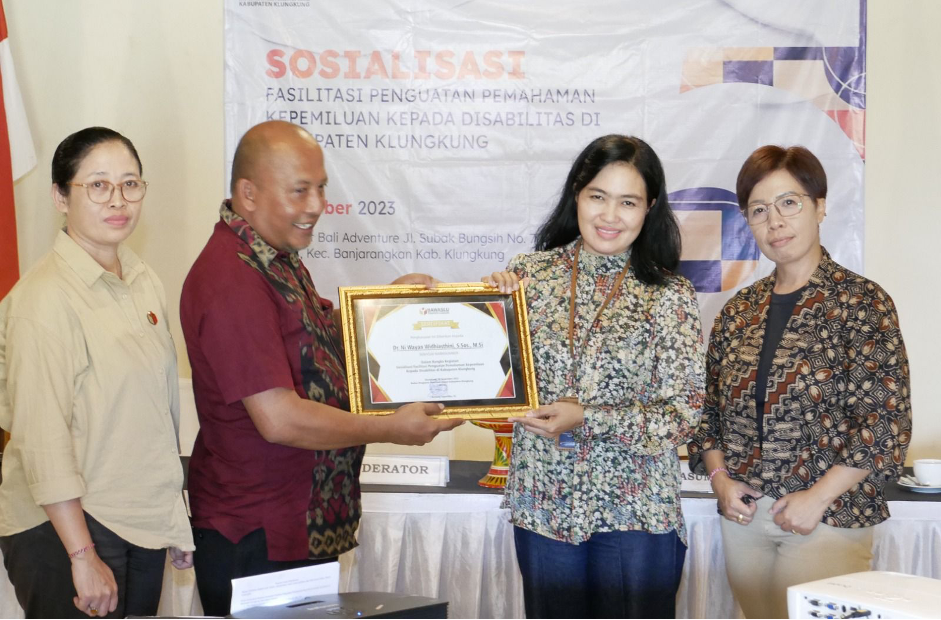
Strengthening Political Awareness for People with Disabilities to Achieve Social Justice in Elections
Denpasar – The General Election (Pemilu) in Indonesia is based on six core principles: direct, general, free, confidential, honest, and fair. These principles not only serve as the foundation for the election process but also represent the state’s commitment to maintaining justice and inclusivity in the democratic process. Every Indonesian citizen who meets the requirements, regardless of religion, ethnicity, or disability status, has the right to directly exercise their voting rights.(18/9/2024) (18/9/2024)
However, the reality on the ground shows that people with disabilities still face many challenges in casting their votes. Physical, mental, visual, or hearing impairments often hinder them from independently exercising their political rights. Limited accessibility, information, and environmental support further reinforce their limitations in freely determining their choices. Moreover, their dependence on close family or surroundings, if not sufficiently facilitated, often prevents people with disabilities from participating in the election.
The issue of injustice experienced by people with disabilities in the political process has received global attention through the Sustainable Development Goals (SDGs), particularly Goal 10, which emphasizes reducing inequality. To achieve social justice and political equality for people with disabilities, there needs to be an active role of academics and the community in providing inclusive political education.
The presence of academics among people with disabilities and their families is crucial in raising awareness, ensuring they can exercise their political rights. As an academic specializing in politics, democracy, and electoral systems, Dr. Ni Wayan Widhiasthini S.Sos, M.Si. has actively provided political education to people with disabilities in Klungkung Regency in preparation for the 2024 Simultaneous Elections and the 2024 Simultaneous Regional Elections. The participants, from disability organizations and inclusive schools, are taught the importance of “political presence.” This means that people with disabilities must be present at polling stations (TPS), either independently or accompanied by their families and close environments.
In addition, people with disabilities also need to convey their aspirations to political actors through political parties. Inclusive policies that favor people with disabilities will not be formed without their voices. Their role in the political process can influence parliamentary decisions, which will eventually result in public policies that address the needs of people with disabilities.
With the presence of people with disabilities in the political arena, we can achieve SDG 10, which is to reduce inequality while promoting inclusivity and social justice for all citizens.



